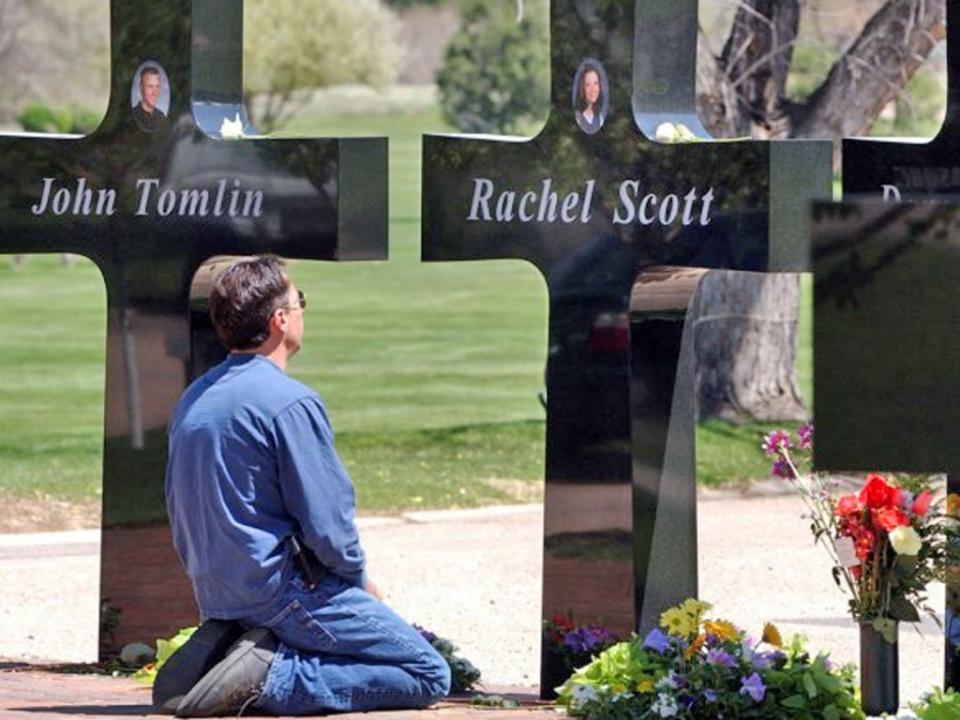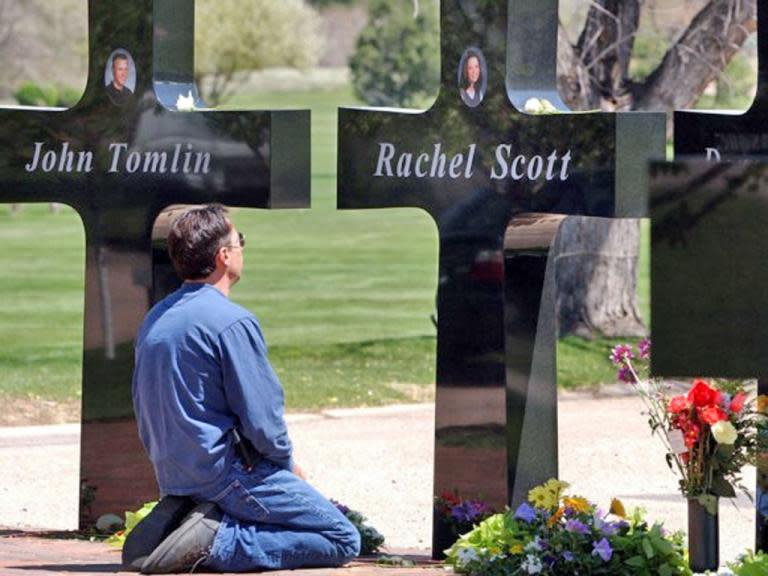Twenty years after the Columbine shooting, I’ve realised what it means to be an American living in a country with stricter gun laws
I was 11 years old the first time I heard the term mass shooting.
Our teachers shuffled us into our school gym for an assembly. I sat on the hard wooden floor, surrounded by body odour and self-loathing and hormones, as I watched a montage of students running with backpacks over their heads.
The students were running to safety. The backpacks were meant to protect them from any bullets that might come their way. They were at Columbine High School in Littleton, Colorado, only a four-hour drive from my home.
In 1999, two students at Columbine opened fire on their classmates and teachers, killing 12 students, one teacher and themselves as well as wounding 23 others. At the time it was the worst school shootings in American history, but it wouldn’t hold that title for long.
In 2012, a gunman killed 20 children, six adults and himself at Sandy Hook elementary school in Newtown, Connecticut. Since then, the US has seen 2,011 mass shootings.
It has been 20 years since Columbine. It was an event that altered the nation and shook my home state of Colorado to its core. It is part of our collective history, and we, as students, were all too aware.
Thankfully, I’ve never had to face America’s gun problem head-on, like so many thousands of people. But that doesn’t mean I’m immune from it. My generation have had their lives defined by a series of mass shootings in schools, concert venues, movie theatres and churches, and it has altered our outlook.
We all went to school, quiet and sullen, on the day of the Aurora, Sandy Hook, Orlando, Las Vegas and Parkland shootings. After each one, we spent chunks of our class time discussing what we would do if it were us.
Our headteacher would announce active-shooter drills to the school. Then our teachers would tell everyone to be quiet and sit in a corner of the room, while they checked the hallway for stragglers, locked the door and turned off the lights. Being the teenagers we were, we didn’t take it seriously, giggling at the excitement of sitting in a dark room for 15 minutes.
We were trained to recognise the signs of a mass shooter: aloofness, antisocial behaviour, a tendency to be violent and volatile. We were told it was our responsibility to tell someone if we noticed the signs.
We weren’t old enough to vote on what would happen to the guns that could kill us, so we prepared for what happened if they did.
It wasn’t until I came to London that I realised how much America’s gun problem has altered my perception of violence.
While the UK might have its own problems to address, gun violence is not one of them. In 1996, the mass shooting of 16 children and a teacher in Dunblane, Scotland led almost immediately to tighter gun laws.
The government banned all handguns in England, Scotland and Wales and called an amnesty in which it confiscated more than 162,000 guns. There has been one mass shooting in the country since.
Yet “what-if” thoughts still creep in when I find myself in any space with a large crowd.
In one instance, we were at the Globe Theatre to see Romeo and Juliet. To signal the start of the play, the two main characters popped out of trap doors in the stage. The sound of the wooden doors hitting the wooden stage was all to similar to that of a gunshot. My American friends and I jumped and looked around in confusion until reality became clear.
The bag checks and metal detectors didn’t make us feel safe. Nor did the knowledge of the UK’s strict gun laws.
Each time another mass shooting happens, Americans fall into this endless gun debate. After Parkland, it felt like we were maybe, finally, making a difference, but nothing has happened since. Today, all schools in Denver are on lockdown because a woman said to be “infatuated” with the Columbine shootings is said to have purchased a gun and travelled to the area. The FBI is currently embroiled in a hunt for her.
By not taking the same action as the UK did, the American government has failed my generation. We will never know a time when we can go to school, a movie, a play or church, and feel with 100 per cent certainty that we’ll be safe.
I certainly hope this changes for future generations. However, 20 years since Columbine, there has been little evidence to show that it will.

 Yahoo News
Yahoo News 

